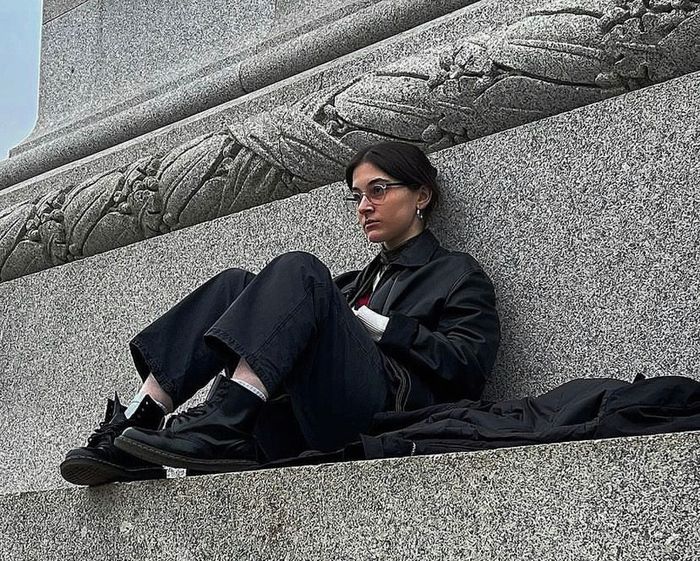What’s wrong with dark academia?
Omar Burhanuddin highlights the deep irony of uncritically embracing faux-intellectual fashion

What’s wrong with dark academia? What’s not to like about a long, flowing cloak, coupled nicely with a waistcoat, trousers and boots in an elegant autumnal ensemble – think Eddie Redmayne in Fantastic Beasts? Or perhaps some rustic, chequered skirts take your fancy, paired with a scarf as skinny as you like? If you attend this university and don’t feel something when watching Dead Poets Society, you’re lying to yourself.
Or are you? This subculture has attracted more than its fair share of blowback, much of which I don’t agree with. Let’s go through the central charges.
“A lot of dark academic imagery draws upon Eurocentric culture”
Elitism? It is, I fear, the point of dark academia. To be honest, a bunch of would-be progressive Oxbridge students denying their institutions’ exclusivity is a laughable sight. In any case, rocking “intellectual fashion” isn’t that out of reach, relatively speaking. Browsing Vinted as I write this piece, I find that I can snap up a scarf, a suede jacket, a tie and a button-up shirt, all for under £30. Meanwhile, a pair of the latest mass-market Nike trainers costs over £150.
Racism? Admittedly, a lot of dark academic imagery draws upon Eurocentric culture: think Harry Potter and the Gothic architecture of elite Western universities. It also glorifies things, such as the nebulous “old money” aesthetic (why won’t that shit leave my IG reels?), that are white-coded. None of this, however, means that the subculture can’t be reclaimed by people of colour who feel so inclined or extended to include wider influences. This is already happening, with the subculture increasingly borrowing imagery from East Asian styles and using non-white models, for example.
“The UK, as in so many things, is not immune from these Atlanticist influences”
Pretence? Firstly, “putting on an act” is an accusation that can be levelled at any subculture. Fashion is, by definition, a performance: a statement not simply of what you are, but what you could be. These ideals and aspirations will diverge from reality to varying extents. Secondly, while some of the dark academia aesthetic is admittedly exaggerated, many of its tropes ring true, especially for Cambridge students. Candlelit halls, 24/7 libraries, cobblestoned streets, collegiate scarves and memorabilia, sleep deprivation … Need I continue?
My problem with dark academia is somewhat different. What I take issue with is the uncritical embrace of an “aesthetic” of high intellectualism and study. Many of the style’s reference points, from cluttered library bookshelves filled with works of the Western canon more quoted than read to a vague sense of the “Judeo-Christian” and “humanist” traditions (whatever those are), are treated as fetish objects. They are valued more for their beauty and the inchoate aura of mysticism they exude than the insights they provide and the tensions and complexities they raise. Treating the stuff of higher education in this way is deeply ironic, to say the least.
“The aesthetic constitutes a backlash against the decades-long corporatisation of higher education”
This fetishisation is in lockstep with broader, sinister trends. Liberal arts educational models are increasingly being politically weaponised by conservative elements, in reaction to diversity initiatives within higher education. The University of Austin, stuffed full of “intellectual dark web” types, and Ralston College in Georgia (whose Chancellor is Jordan Peterson) – both federally unaccredited institutions – are symptomatic of this movement.
The UK, as in so many things, is not immune from these Atlanticist influences. Northeastern University, London, and the University of Buckingham (whose Vice-chancellor recently accused Cambridge of “discriminating” against “privately-educated white males”) are both projects geared towards more traditional, “anti-woke” conceptions of classical learning. Dark academic fashion implicitly buttresses these culture war sentiments, aestheticising a sanitised image of outmoded educational methods threatened by diversity initiatives in the intake and curricula of prestigious universities.
I don’t want to be unduly alarmist about this. For one, the reasons behind the popularisation of dark academia are clear and can be sympathised with. The aesthetic constitutes a backlash against the decades-long corporatisation of higher education. With the Tories threatening to defund purportedly “Mickey Mouse” degrees (which, coming from a PPEist PM, is pretty rich) and those not serving as a pipeline into industry, this trend has not yet abated. The internet subculture of “intellectual” fashion also experienced an uptick during the pandemic, when amid school and university closures, people yearned for a return to in-person learning.
All things considered, then, I’m confident that things won’t go too far with dark academia. For all we hear about the subculture, Cambridge’s fashion scene is hardly dominated by it. Students embrace countless styles, from the maximalist brio of Dragtime to the eclectic cosmopolitanism of the annual charity fashion show.
To all the scarf-enjoyers, turtleneck-donners, and cloak-wearers, then – rock on. It doesn’t matter what your peers say or what the latest Camfess dump spews. My only condition: read that copy of The Bell Jar you’re carrying before you stick up Plath posters in your room.
 News / Eight Cambridge researchers awarded €17m in ERC research grants27 December 2025
News / Eight Cambridge researchers awarded €17m in ERC research grants27 December 2025 News / Clare Hall spent over £500k opposing busway 24 December 2025
News / Clare Hall spent over £500k opposing busway 24 December 2025 Comment / League tables do more harm than good26 December 2025
Comment / League tables do more harm than good26 December 2025 Comment / The ‘class’ of Cambridge24 December 2025
Comment / The ‘class’ of Cambridge24 December 2025 News / Caius mourns its tree-mendous loss23 December 2025
News / Caius mourns its tree-mendous loss23 December 2025









